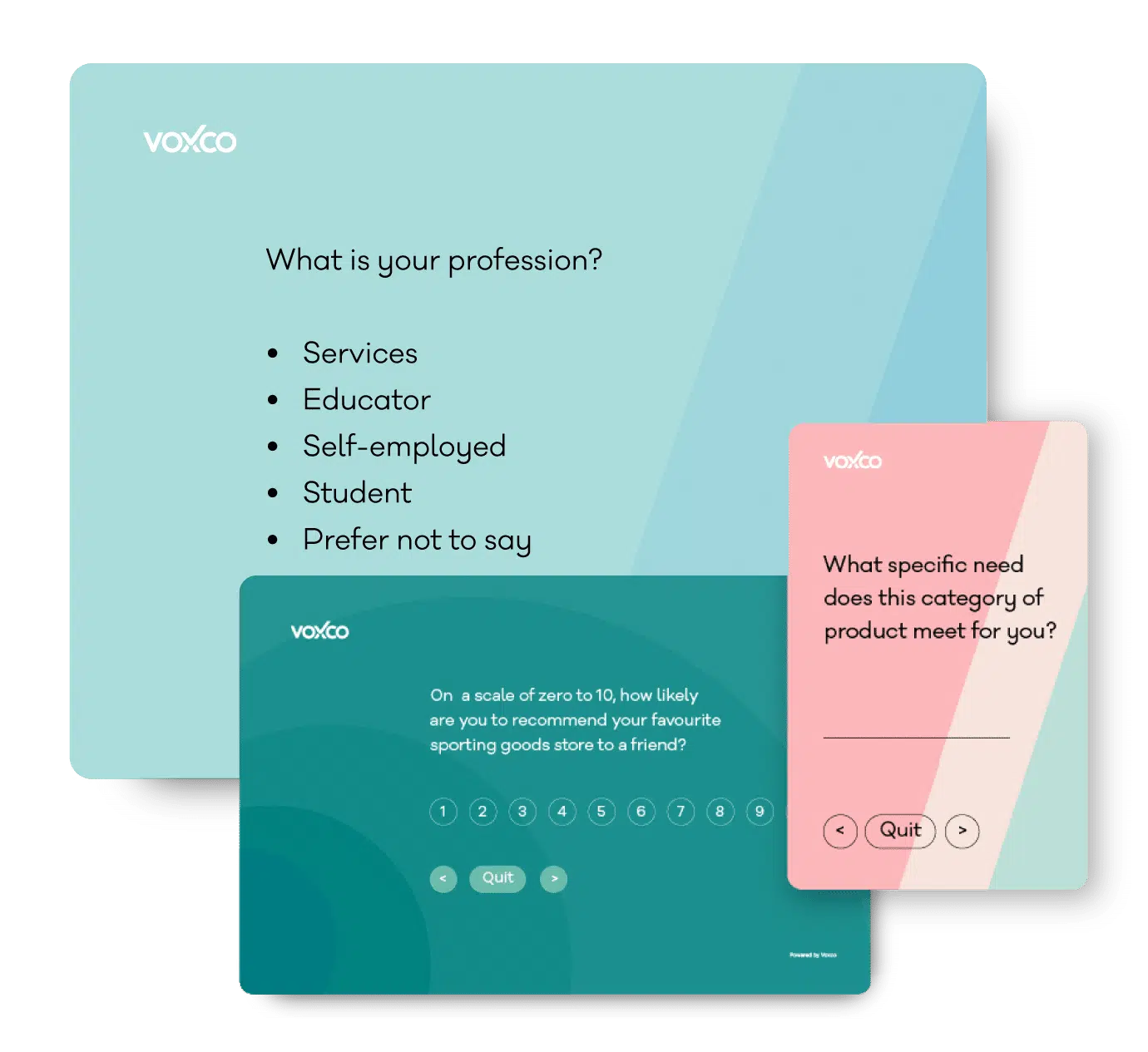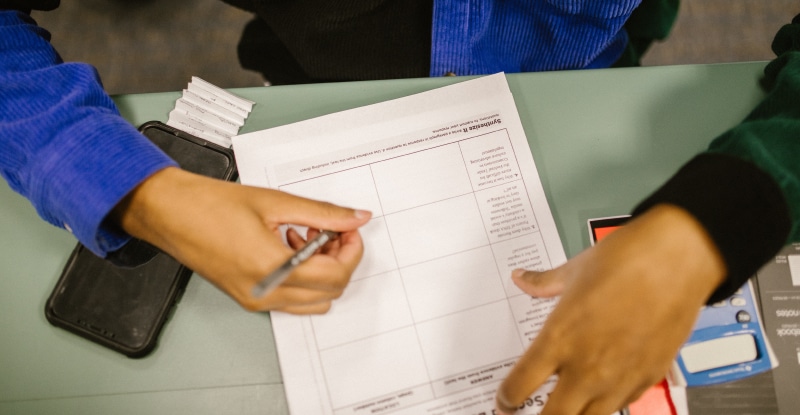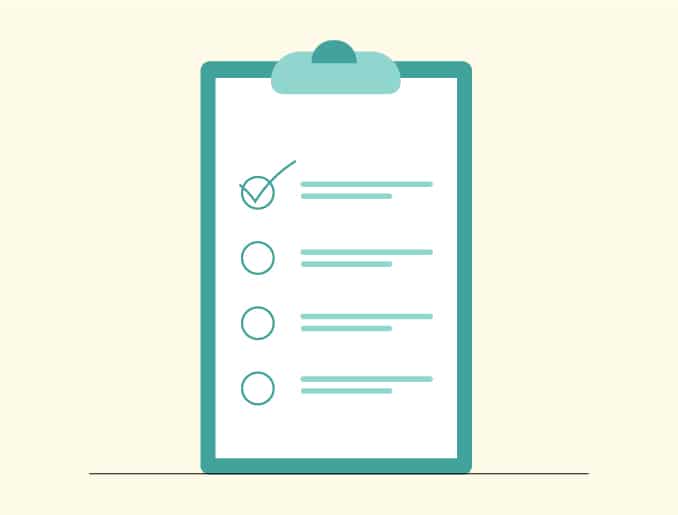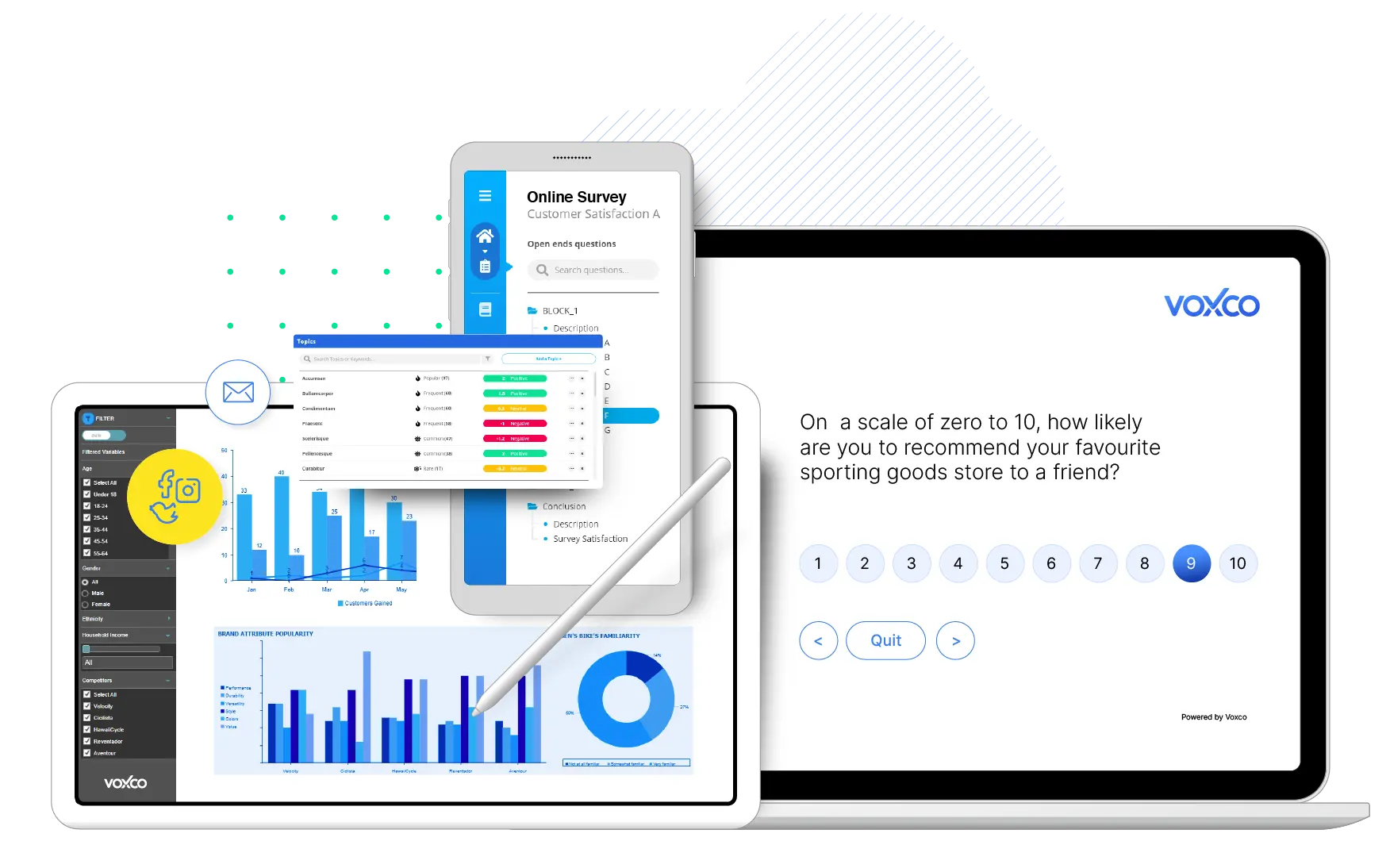Necessary cookies help make a website usable by enabling basic functions like page navigation and access to secure areas of the website. The website cannot function properly without these cookies.
| Name |
Domain |
Purpose |
Expiry |
Type |
|
hubspotutk |
www.voxco.com |
HubSpot functional cookie. |
1 year |
HTTP |
|
lhc_dir_locale |
amplifyreach.com |
--- |
52 years |
--- |
|
lhc_dirclass |
amplifyreach.com |
--- |
52 years |
--- |
Marketing cookies are used to track visitors across websites. The intention is to display ads that are relevant and engaging for the individual user and thereby more valuable for publishers and third party advertisers.
| Name |
Domain |
Purpose |
Expiry |
Type |
|
_fbp |
www.voxco.com |
Facebook Pixel advertising first-party cookie |
3 months |
HTTP |
|
__hstc |
www.voxco.com |
Hubspot marketing platform cookie. |
1 year |
HTTP |
|
__hssrc |
www.voxco.com |
Hubspot marketing platform cookie. |
52 years |
HTTP |
|
__hssc |
www.voxco.com |
Hubspot marketing platform cookie. |
Session |
HTTP |
Analytics cookies help website owners to understand how visitors interact with websites by collecting and reporting information anonymously.
| Name |
Domain |
Purpose |
Expiry |
Type |
|
_gid |
www.voxco.com |
Google Universal Analytics short-time unique user tracking identifier. |
1 days |
HTTP |
|
MUID |
bing.com |
Microsoft User Identifier tracking cookie used by Bing Ads. |
1 year |
HTTP |
|
MR |
bat.bing.com |
Microsoft User Identifier tracking cookie used by Bing Ads. |
7 days |
HTTP |
|
IDE |
doubleclick.net |
Google advertising cookie used for user tracking and ad targeting purposes. |
2 years |
HTTP |
|
_vwo_uuid_v2 |
www.voxco.com |
Generic Visual Website Optimizer (VWO) user tracking cookie. |
1 year |
HTTP |
|
_vis_opt_s |
www.voxco.com |
Generic Visual Website Optimizer (VWO) user tracking cookie that detects if the user is new or returning to a particular campaign. |
3 months |
HTTP |
|
_vis_opt_test_cookie |
www.voxco.com |
A session (temporary) cookie used by Generic Visual Website Optimizer (VWO) to detect if the cookies are enabled on the browser of the user or not. |
52 years |
HTTP |
|
_ga |
www.voxco.com |
Google Universal Analytics long-time unique user tracking identifier. |
2 years |
HTTP |
|
_uetsid |
www.voxco.com |
Microsoft Bing Ads Universal Event Tracking (UET) tracking cookie. |
1 days |
HTTP |
|
vuid |
vimeo.com |
Vimeo tracking cookie |
2 years |
HTTP |
Preference cookies enable a website to remember information that changes the way the website behaves or looks, like your preferred language or the region that you are in.
| Name |
Domain |
Purpose |
Expiry |
Type |
|
__cf_bm |
hubspot.com |
Generic CloudFlare functional cookie. |
Session |
HTTP |
Unclassified cookies are cookies that we are in the process of classifying, together with the providers of individual cookies.
| Name |
Domain |
Purpose |
Expiry |
Type |
|
_gcl_au |
www.voxco.com |
--- |
3 months |
--- |
|
_gat_gtag_UA_3262734_1 |
www.voxco.com |
--- |
Session |
--- |
|
_clck |
www.voxco.com |
--- |
1 year |
--- |
|
_ga_HNFQQ528PZ |
www.voxco.com |
--- |
2 years |
--- |
|
_clsk |
www.voxco.com |
--- |
1 days |
--- |
|
visitor_id18452 |
pardot.com |
--- |
10 years |
--- |
|
visitor_id18452-hash |
pardot.com |
--- |
10 years |
--- |
|
lpv18452 |
pi.pardot.com |
--- |
Session |
--- |
|
lhc_per |
www.voxco.com |
--- |
6 months |
--- |
|
_uetvid |
www.voxco.com |
--- |
1 year |
--- |





 English
English French
French









